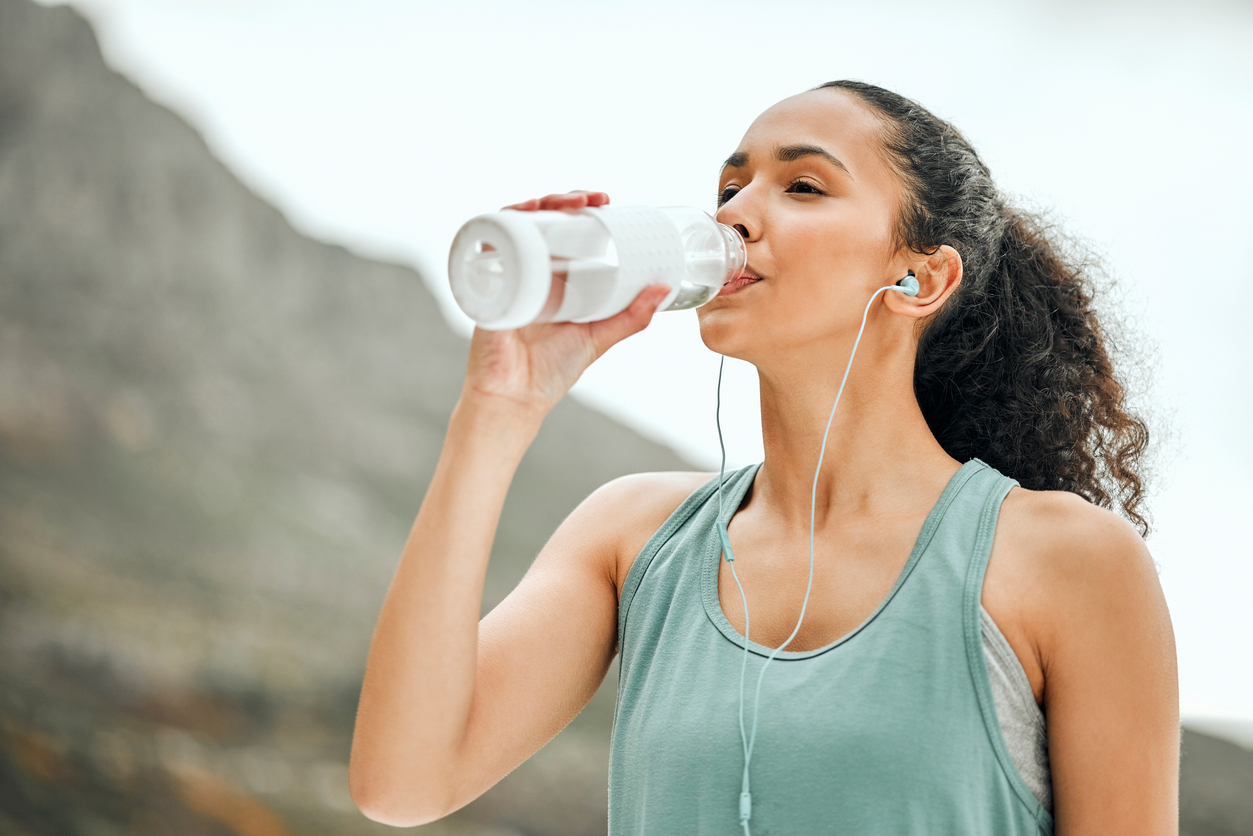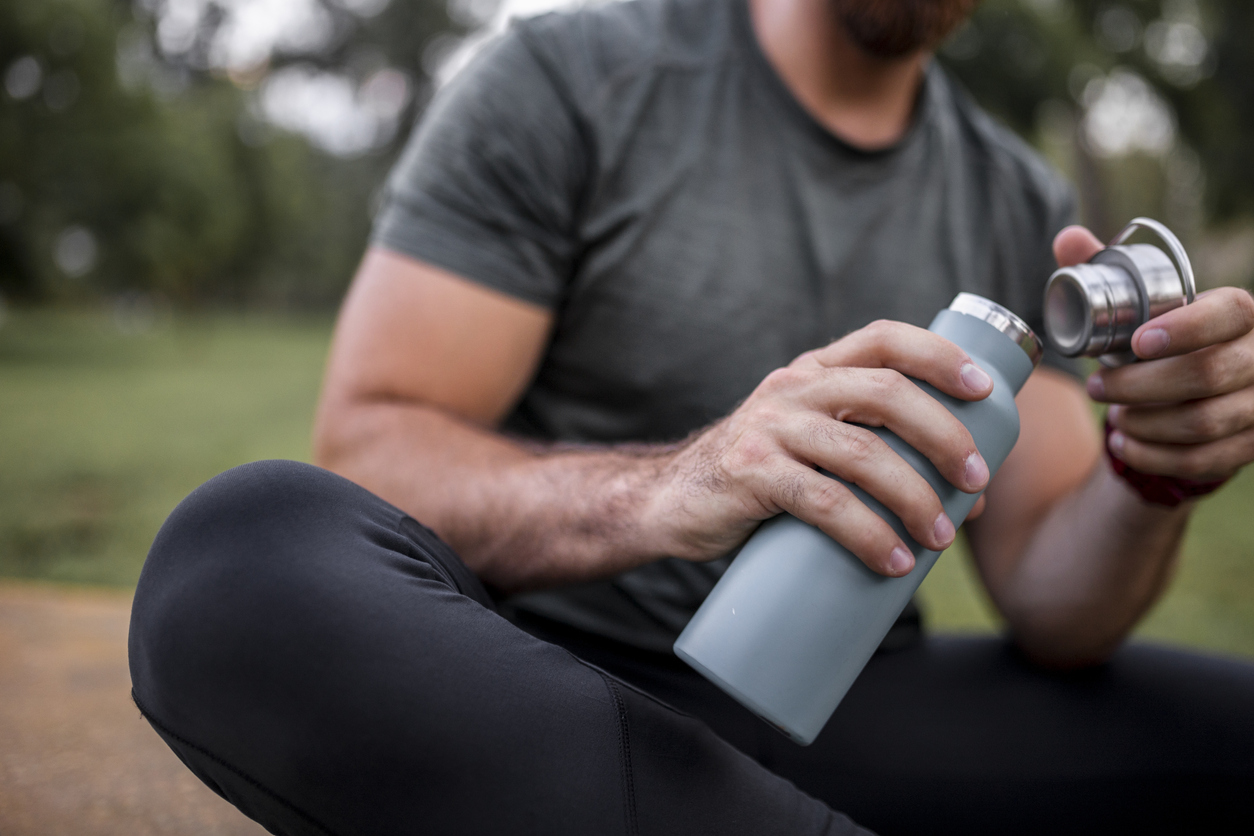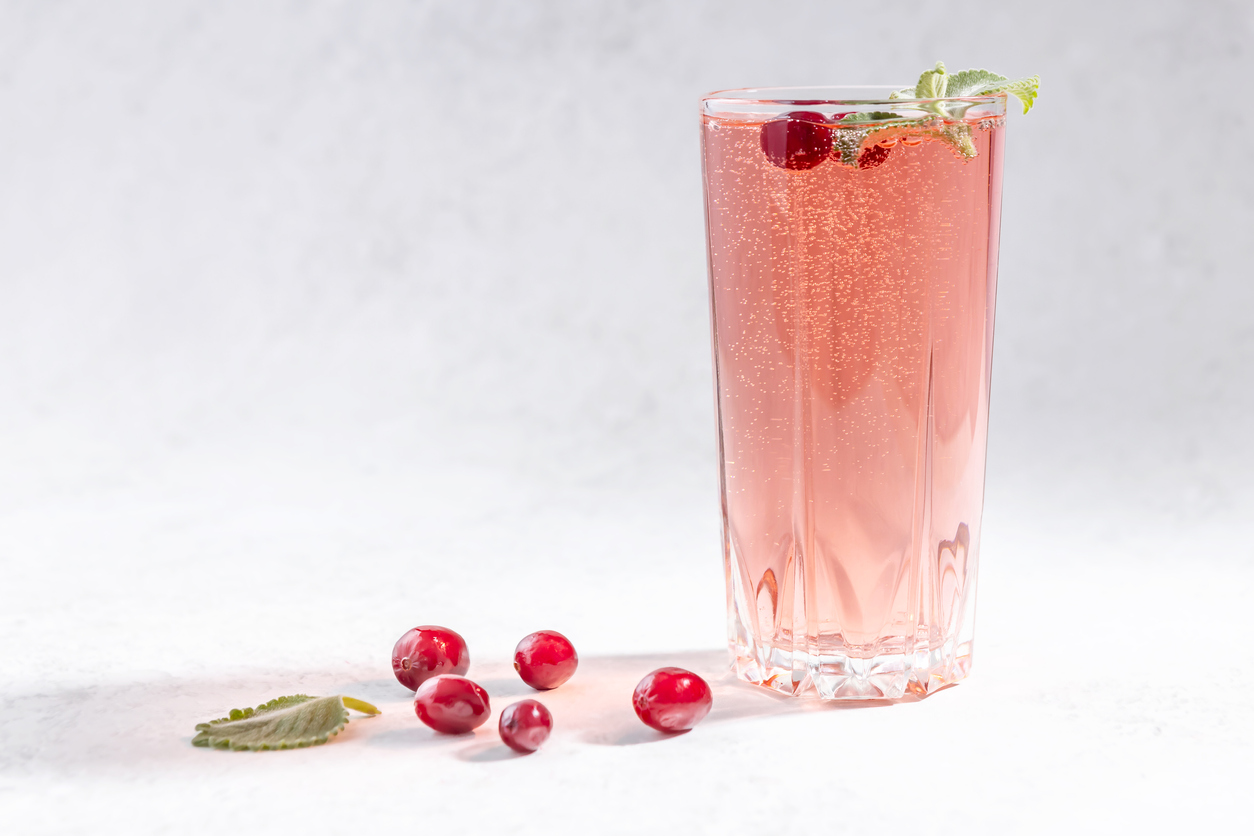Diabetes and Hydration: Are You Drinking Enough Water?
By Erin Davis
 Do people with diabetes have special hydration requirements? Here’s how water affects blood sugar – plus tips for getting more much-needed fluids.
Do people with diabetes have special hydration requirements? Here’s how water affects blood sugar – plus tips for getting more much-needed fluids.
Between carrying a water bottle around and fitness apps reminding you to hydrate, there’s no reason you shouldn’t be elevating your water game. In the past few years, there’s been more focus on consuming water, which is a great (and necessary) habit to incorporate.
Drinking enough water has many benefits, including improved circulation and digestion. Our bodies are made up of mostly water. Adequate hydration is essential to most of the systems in our body. Furthermore, it’s especially significant for people with diabetes.
“Those with diabetes don't necessarily need more water than those without, but hydration is even more important for those with diabetes,” said Amanda Lane, a certified diabetes care and education specialist.
Here’s why hydration is so critical for blood sugar and your overall health.
What’s the ideal amount to drink?
You may have heard that you need to drink eight glasses of water every day. It turns out, there isn’t a hard and fast rule when it comes to how much.
“Water needs vary from individual to individual. Needs are based on age, medical conditions, activity, where you live (if it’s a hot or cold environment), and if you are pregnant or breastfeeding,” said Amy Beney, a certified diabetes care and education specialist.
General recommendations can be used as a starting point. According to the U.S. National Academies of Sciences, Engineering, and Medicine, an adequate daily fluid intake is:
-
About 15.5 cups (3.7 liters) of fluids a day for men
-
About 11.5 cups (2.7 liters) of fluids a day for women
Keep in mind that these recommendations also include foods and other beverages that contain water. For example, foods like soup and yogurt have quite a bit of water.
So how do you know how much to drink? Esther Tambe, a registered dietitian nutritionist and certified diabetes care and education specialist, shared an easy method.
“One way to determine if you are adequately hydrated is to do a urine color check. The color of your urine can indicate your hydration status; a light, pale yellow color suggests adequate hydration,” Tambe said.
That said, she added this simple strategy may not be the best indicator for everyone as other factors like medications, vitamins, and certain foods can change the color of your urine. Liver and kidney disease can also alter your urine color.
Is drinking when thirsty enough?
Thirst is a sensation that occurs in response to a reduction in fluid in the body’s cells. So while you may be slightly dehydrated when you start to feel thirst, this is a normal reaction.
In most situations, drinking to quench your thirst is usually enough to properly hydrate. However, if you are participating in endurance or high-intensity physical activity, you may need to plan to ensure you’re getting enough fluids.
In some cases, like in older populations, thirst may be diminished making it essential for more regular and intentional hydration.
Diabetes and dehydration
Your body is constantly using and losing fluid. Dehydration, or not drinking enough fluids, can increase your blood sugar.
“When dehydrated, your blood becomes more concentrated with glucose,” Tambe said.
Research has shown that inadequate fluid intake is associated with hyperglycemia or high blood sugar. Constantly being in a dehydrated state is also not good for metabolic health in general.
Additionally, elevated blood glucose levels may increase the electrolytes in your blood, thereby disturbing fluid balance. Beney further described how diabetes can cause dehydration.
“When blood sugar is high, the body attempts to get rid of the glucose by producing more urine. This can also create dehydration in the body due to increased urine production,” said Beney.
While you may not require more water than someone without diabetes, you may have to put in more effort to avoid dehydration.
Signs of dehydration
“Signs of dehydration can be tricky since they aren't specific,” said Lane.
That’s because many symptoms of dehydration overlap with the signs of high blood sugar. Signs of dehydration to watch out for include:
-
Headache
-
Dizziness or lightheadedness
-
Muscle cramping
-
Dark, smelly urine
-
Increased thirst
-
Fatigue
-
Nausea
-
Salt cravings
“Prolonged dehydration can even cause skin tenting and slow wound healing,” she added.
Does drinking water lower your blood sugar?
There’s a reason you’re thirsty when your blood sugars are above target.
“Water can lower blood sugar levels slightly. Properly working kidneys naturally filter out some of the extra glucose, and being hydrated helps the kidneys work at their best,” Lane explained
Tips for getting enough fluids
How do you prioritize your hydration? Here are some tips for boosting your fluid intake:
1. Start with water: Beney suggested drinking a glass of water first thing in the morning. “One tip I use myself is that I fill my coffee mug with water and do not start drinking coffee until my water is gone.”
2. Keep water accessible: “Keep a water bottle in your car, workstation, or bag,” Beney said. “If it’s in your visual field, you may be more tempted to drink.”
3. Use a reminder: Technology to the rescue. There are tons of apps you can use to remind you to drink up. Tracking your water intake in a fitness app, journal, or planner can also be satisfying and motivating.
4. Get a bottle you like: Lane suggested using clear bottles so you can see how much you’ve consumed or how much you have left.” Insulated, stainless steel water bottles are also nice for keeping water nice and cold, if that’s what you prefer.
5. Create a habit: Build the habit of drinking water by pairing it with another activity, like after you brush your teeth or when you take medications.
6. Use a straw: “You tend to drink more using a straw than sipping from a cup,” Beney said. Nowadays there are lots of options for metal or reusable straws to avoid waste.
7. Pair a beverage with your food: “Always have something to drink when you eat. Pour yourself a glass of water when you sit for a meal,” said Beney.
8. Drink early: Don’t want to be up going to the bathroom all night? Tambe suggested consuming water earlier in the day and cutting off liquids 3-4 hours before bed.
What if you don’t like water?
Some people just don’t like drinking water. No worries – you can still be adequately hydrated with these tips:
-
Flavored water: “Try infusing water by adding fruit slices to improve the taste,” Tambe recommended. Remember that store-bought infused water generally contains some calories, sugar, and carbs because extra ingredients are often added during manufacturing. It’s always a good idea to check nutrition labels before consumption.

-
Sparkling water: Change it up and add in a can of your favorite sparkling water to up your fluid intake.
-
Herbal teas: Tea offers health benefits like bolstering the immune system and warding off inflammation. There are also so many different flavors and types of herbal tea it’s a great way to diversify your beverage options.
-
Other beverages: Don’t forget milk, which also provides other nutrients, like protein and vitamin D. However, milk contains lactose, a sugar naturally found in milk. It’s important to keep in mind that even non-dairy milks like oat milk often contain added sugar. There are also prebiotic sodas as an alternative to sugary soft drinks (again, they still have “natural” sweeteners, which may be healthy but still contribute to sugar intake). While too much caffeine may leave you feeling jittery and affect your blood sugar, beverages like green tea and coffee still count toward your fluid intake. Caffeine-free tea and coffee are also available if caffeine is a problem for you.
The bottom line
Being dehydrated can increase your blood sugar levels. High blood sugar can also cause you to become dehydrated. Water needs are different for everyone and critical for all of your body’s functions. Be purposeful about your fluid intake to be sure your body is working at its best.








